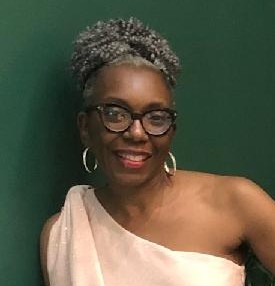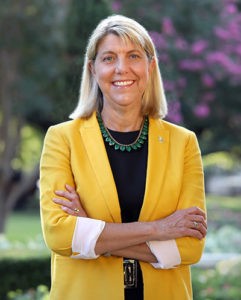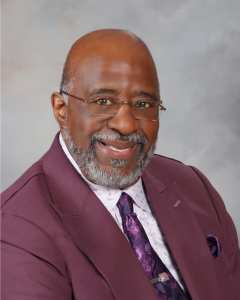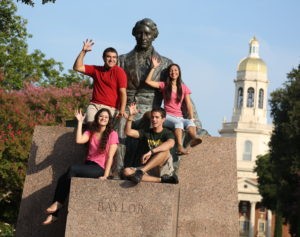Baylor University’s June 26 pledge to examine its racist history and become a more inclusive institution was received with joy by alumni, who took to social media in droves to commend their alma mater and call for change. But pledges and declarations will not be enough, alumni added.

Marie Brown
“That’s a good first step in acknowledging the wrongs and looking at how to make things right,” said Marie Brown, a Dallas social worker, 1992 Baylor graduate and president of the Baylor Black Alumni Network. “Now we need to see some actions — what are they going to do to make things better?”
An Instagram page titled “Dear Baylor” began filling with firsthand accounts of current and former students who believe they faced discrimination at Baylor because are not white or Christian.
The university announced late on Friday, June 26, that its Board of Regents unanimously approved a resolution to initiate “a process on racial conciliation” involving a pledge to greater dialogue and a study of campus monuments and buildings dedicated to the slave-owning and Confederate roots of the university’s founders and early supporters.
Baylor is believed to be the first major Baptist-affiliated university in America to take such a public stance of investigating its founding and past actions for racism.
The university will pursue “opportunities to inclusively explore and engage in significant conversations about this aspect of the institution’s past,” Baylor said in a news release. A commission consisting of alumni, faculty and students will be appointed to complete its work by the end of fall semester 2020.
“I commend the Board of Regents for stepping forward with a truthful acknowledgment of the University’s past, including its connections to slavery and the Confederacy,” Baylor President Linda Livingstone said in comments included in a Baylor release. “We must stand for all of God’s children.”

Linda Livingstone (Photo/Baylor)
Neither the Baylor news release nor the resolution mention George Floyd, whose death at the hands of Minneapolis police last month has created a wave of educational, sports and corporate institutions pledging racial reforms and declaring support of the Black Lives Matter movement.
But Livingstone publicly cited Floyd in early June in advocating that Baylor take the similar actions, according to news reports.
Baylor’s announcement also impacted Latino students and alumni, many of whom took to social media over the weekend to share stories about profiling and discrimination during their time at the majority white university.
“After reading this press release thoroughly, I can say I cried,” one commenter said on the Baylor Latino Alumni Network Facebook page. “I pray that they follow through. I faced so many racist incidents at school. I pushed through to prove them wrong. I love our university, but boy, there were some difficult moments.”

Laura Cadena
It appears Baylor is serious about its plans to broaden diversity, said alumna Laura Cadena of Dallas. The resolution and its announcement are “definitely not something I have seen in the past, so I am hopeful,” said Cadena, who graduated from Baylor with an undergraduate degree in 1997 and from George W. Truett Theological Seminary in 2001.
The news impacts Hispanics in different ways, she said. It may offer an avenue to support of the Black Lives Matter movement, and it may help lessen discrimination for all people of color on the Waco campus.
Cadena recalled a profiling moment of her own at Baylor when she was assigned a dorm based on her minority status. “I hope this moment opens the door to have those conversations with students, faculty, staff and alumni,” she said.
The regents’ resolution raised several questions for Joseph C. Parker, senior pastor at David Chapel Missionary Baptist Church in Austin, Texas, and the first Black graduate of Baylor’s Truett Seminary.

Joseph C. Parker
Parker said he wanted to know if money from the 18th century slave economy helped finance the founding of the university and what ties Baylor had to the Southern Baptist Convention early on.
He recommended Baylor adhere to its Christian principles by offering a confession about its racist past. “Acknowledging doesn’t equate to confessing,” said Parker, who also is an attorney.
The university must take both a practical and spiritual approach to instituting institutional and cultural change on the campus, he added. “In order to have a structural change, Baylor has to deal with the ghost of its racist past and legacy which have shaped the culture there.”
Brown added that Baylor isn’t known for having major racial problems or being unsafe for African Americans: “For the most part it has a reputation of being fairly racially sensitive.”
But there are instances every semester where non-white students report unfair treatment, either at the hands of faculty or other students. “You could talk to a number of students who could all tell you a story,” she said.

A Baylor University website photo shows students posing atop a campus statue of Judge R.E.B. Baylor, one of the university’s founders.
Digging into a history of racism is no small task for Baylor, because the university’s namesake reportedly owned slaves, Brown noted.
The regents’ resolution described founders Judge R.E.B. Baylor, James Huckins and William M. Tyron, a minister, and other Baptist leaders, as slave-owners or sympathizers of slavery.
Brown noted that a large statue of Baylor stands in the middle of the campus. “If you are going to take down other statues and monuments, you can’t ignore the fact that this man had slaves. You just have to own that.”
In its resolution, the regents declared that the university’s “Christian commitment is inconsistent with racism in any form,” that the university denounces “racism in all its forms” and committed to “tangible and systemic changes to ensure faith and equitable policies and practices.”
Campus-wide conversations will be held to strengthen Baylor’s commitment to a “vibrant, diverse campus community” which includes “listening intentionally to those affected by racism,” the release said.
Brown said all this sounds good. “I hope it’s authentic,” she said. “I hope and pray it is going to be something that is long lasting.”
Editor’s note: This story was updated on June 30 at 9:10 a.m. to clarify language regarding Baylor’s founders as slaveholders or slave-holding sympathizers versus being Confederates and on June 30 at 10:30 p.m. to include comments by Joseph Parker.
